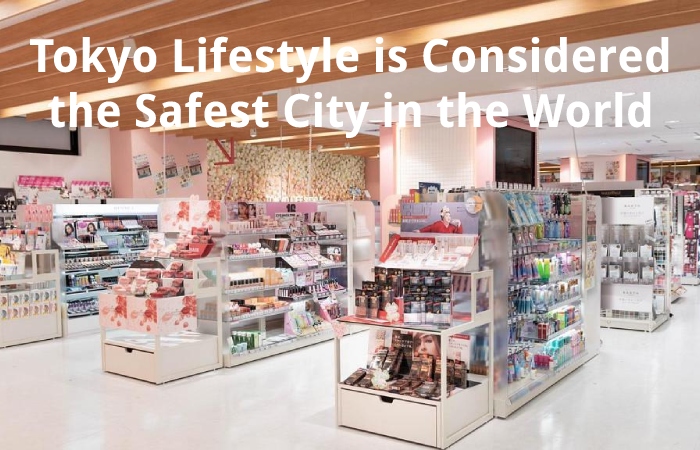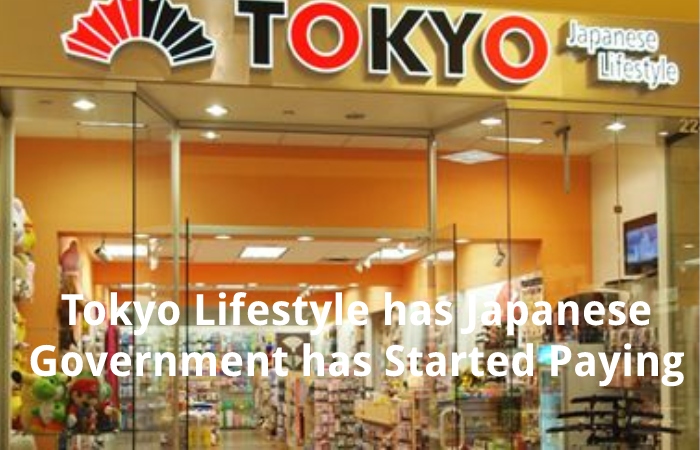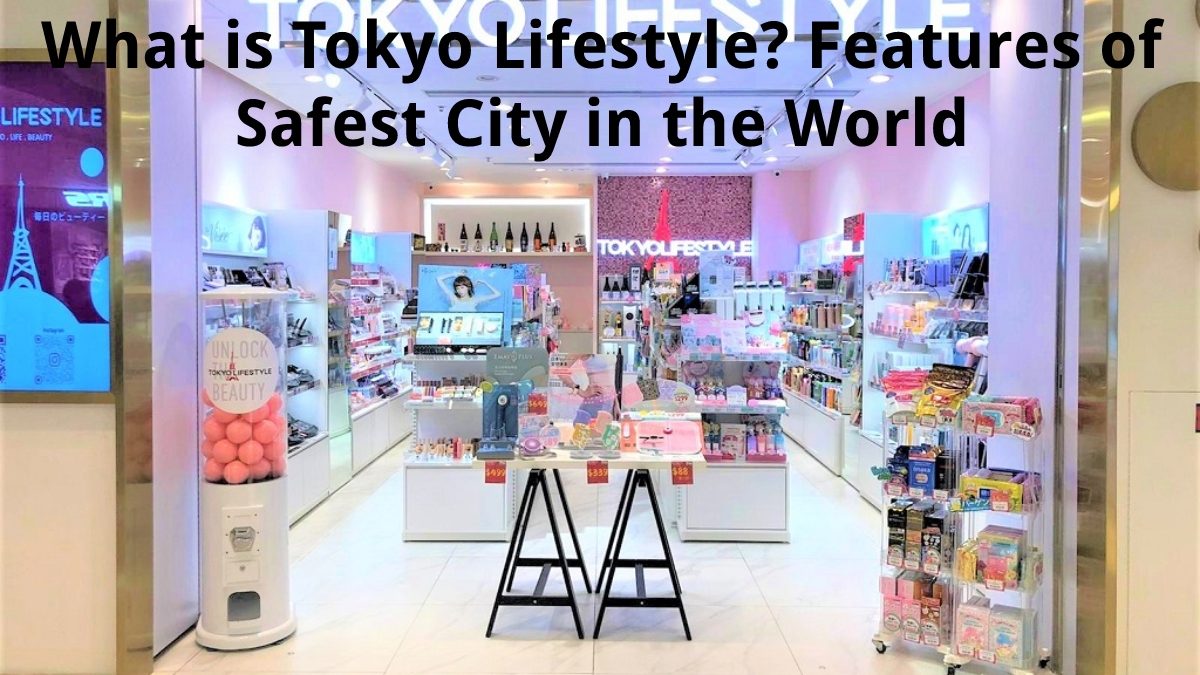Table of Contents
What is Tokyo Lifestyle?
Tokyo lifestyle has been the most livable city in the world for the second consecutive year. At the same time, the Spanish Madrid and Barcelona occupy positions 14 and 19, respectively, in the list of populations with the highest quality of life in the world published this Friday by the trend magazine Monocle.
The Japanese capital heads this annual ranking that the British publication, one of the most influential lifestyle magazines, has drawn up based on parameters such as public transport, cultural and nightlife, safety, and bookstores in the cities.
Features of Tokyo Lifestyle
Tokyo (Tokyo in English) is Japan’s capital and the world’s largest metropolis, with 34.5 million inhabitants. The population density is twice that of, say, New York. The foundation of Tokyo (known initially as Edo) was located in 1457, and the numerous earthquakes and fires the city has suffered stand out in its history. Start in 1868, the Imperial Palace was installed in the town, with which Tokyo replaced Kyoto as the capital of Japan.
Tokyo fueled the so-called Japanese economic miracle during the 1950s and 1960s. Much of the rural populace migrated to the Japanese capital, which became the largest metropolitan area in the world. The city of Tokyo (eight and a half million) has 23 neighborhoods and is the area that concentrates on the main tourist attractions.
Mount Fuji is West of Tokyo and is Visible on Clear Days.
Tokyo is the largest financial market in Asia and one of the world’s largest economies on its own.
Food is very cheap: If you don’t want to spend money, you can eat for 4-5 euros. Of course, one can also choose luxurious restaurants, but in all cases, you will be delighted with Tokyo’s gastronomic level.
Sleeping is expensive, and you have to book in advance; if not, one runs the risk of paying too much. It’s best to find a western-style hotel that, while not central, is well connected by subway or train.
Most Tokyoites don’t speak English (or don’t want to say it), which is often a problem when orienting yourself and getting the most out of the city. This confusion help by the strange system of naming and numbering streets and buildings.
Tokyo is a very safe city compared to the fantastic world metropolises.
Tokyo Lifestyle is Considered the Safest City in the World

The Tokyo ranked first in the Safe Cities Index 2019 ranking compiled by the Economist Intelligence Unit, and Osaka came third. This survey has conduct every two years since 2015, and Tokyo has come out on top of the table each time. The index analyzes 60 cities worldwide using 57 indicators divided into four categories: digital security, infrastructure security, health security and personal security.
The 15 Safest Cities (out of a maximum of 100 points)
1 Tokyo 92.0
2 Singapore 91.5
3 Osaka 90.9
4 Amsterdam 88.0
5 Sydney 87.9
6 Toronto 87.8
7 Washington 87.6
8 Copenhagen 87.4
8 Seoul 87.4
10 Melbourne 87.3
8 Chicago 86.7
12 Stockholm 86.5
13 San Francisco 85.9
14 London 85.7
15 New York 85.5
Japan particularly stood out in the health security category, with Osaka taking first place and Tokyo second. Access to and quality of health services, as well as access to safe and adequate food, air and water quality, and speed of emergency services, all scored perfect or near perfect.
Do you Recommend a Neighborhood in Tokyo Lifestyle to Look for a Hotel?
From my experience, the Ginza area is the most recommended. It is to the east of the centre of Tokyo, very well located and connected to any part of the city. You can find it halfway between Asakusa, a popular neighbourhood with the oldest temple in Tokyo, and the area of Shinjuku and Shibuya, where the famous image of the zebra crossing is found where thousands of pedestrians cross. And also, It is also interesting to stay at least one night in a ryokan, traditional Japanese accommodation.
Let’s Say it’s My First Time in Tokyo; what Shouldn’t I Miss?
There are many options, and I will name my leading suggestions. To enjoy the culture and life of a Tokyoite, I think you have to go to Asakusa and visit the Sensei temple, the oldest in the city. I also find it inspiring to see the Meiji Shrine, where Emperor Meiji, the first emperor under the constitutional system after the samurai period, worshipped. And also, The impressive thing is the forest of the enclosure, whose surface is 70 hectares and is one of Tokyo’s great lungs.
Let’s Get out of Tokyo
The first object is that our rail network benefits getting around the country. Spaniards who visit us often take the bullet train to Kyoto, Japan’s ancient and historic capital, or to Nikko -a small city in Tochigi prefecture north of Tokyo- for the spectacular constructions designated as world heritage. Humanity and the religious space integrate into nature. And also, I always tell them that other places are worth exploring. From Tokyo, you can make some fascinating excursions.
Tokyo Lifestyle has Japanese Government has Started Paying

With more than 38 million inhabitants, Tokyo is the largest metropolitan area. For Japan, it is beginning to be a problem: about a third of its population concentrates in the tremendous capital. And also, It the various regions of the country’s interior face a tragic demographic decline.
How many? About 3 million yen (about €23,000 per year). And also, The game would go to those residents of Tokyo who expressed their desire to move. And also, It is not something simple. Tokyo concentrates most of the government bureaucracy (the seat of parliament, the executive, and the Emperor are there), the main job opportunities and an unparalleled cultural life to top it off. If you go, let it be for a good cause.
The problem: Japan is aware of the tremendous demographic paradox it faces: while its population is irremediably ageing ( the highest life expectancy on the planet vs one of the lowest birth rates), Tokyo continues to grow ( 22 consecutive years on the rise).And also, As a result, smaller cities are emptying, and the volume of abandoned space in the country’s interior is already equivalent to the area of Austria.
Why go? Beyond the monetary incentive, there are reasons to seek your fortune far from Tokyo. The city mammoth encapsulates and projects all the main macro-cities’ problems: demographic and housing pressure, high competition, long trips, and risk economic demands. The smaller cities offer cheap prices, tranquility and good quality of life.
Alternatives: Aware of this, the government has been promoting a “revitalization” plan for rural regions for some time. Cities like Fukuoka have become technological hubs, attracting many skilled workers thanks to their excellent wages, low prices and proximity to other markets. And also, Others like Niseko have opted for tourism. Japan offers tax incentives to companies that establish themselves in other parts of the country.
Conclusion
Japan is one of the most fascinating countries out there. No doubt. And it is because it is difficult to understand. So reserved, so polite, so orderly. And also, It is the third largest economy in the world, and they do not stick their chests out. It doesn’t seem they care about that; they continue with their commendable discretion, advancing without breaking towards the future. Maybe that’s why it’s hard to understand them. And also, Its capital, Tokyo, was a modest fishing village a few hundred years ago. Its foundation dates back to 1457 when Oat Doka built Edo Castle.

